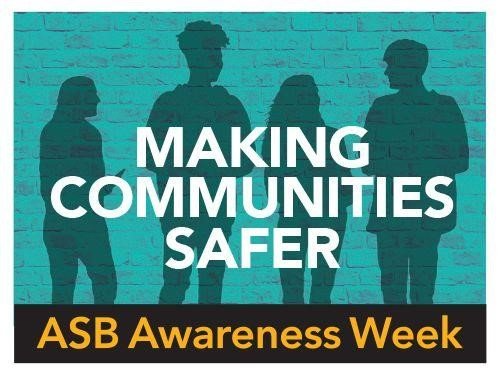
5 Top Tips for Applying for an Anti-Social Behaviour Injunction
More needs to be done to tackle anti-social behaviour.
That’s the verdict of 56% of people surveyed by YouGov in April 2022. What’s more, 33% of people surveyed believe anti-social behaviour has got worse in their local area compared with 3 years ago.
As a responsible and caring housing officer, you’ll want to do everything you can to tackle anti-social behaviour affecting your communities. That, of course, means applying for anti-social behaviour injunctions, where appropriate.
This week (18–22 July 2022), as you’ll be aware, is the second UK-wide ASB Awareness Week organised by Resolve. Today (Wednesday 20 July) the focus is on best practice.
So what is best practice when it comes to applying for an ASBI?
In this article, we share our 5 top tips.
1. Take a broad view of when you can act
There are many circumstances in which a social housing provider can apply for an injunction under the Anti-Social Behaviour, Crime and Policing Act 2014. That’s because the definition of anti-social behaviour in section 2 is wide enough to cover most situations.
It may be you want to prevent one of your tenants from behaving in an anti-social way. But that’s not the only category of person whose anti-social behaviour you can seek to curb.
So who could be the subject of an ASBI?
- Tenants
- Leaseholders
- Shared owners
- Pitch holders (on traveller sites)
- And anyone coming into the locality of your housing who’s causing problems.
The key is to link the anti-social behaviour to one of your properties or the locality when you’re putting together your evidence. Make the connection clear to the Court.
2. Follow the CJC’s pre-action process
Currently, there’s no formal court pre-action protocol or Home Office guidance for anti-social behaviour injunctions. But this was an area that the Civil Justice Council addressed in its report, Anti-Social Behaviour and the Civil Courts.
The CJC’s Working Party found significant support for a national pre-action protocol. It suggested how that might be worded (see pages 45–49 of the report).
Although the recommended pre-action protocol is not enshrined in law, as a savvy housing officer you would be wise to follow it. Judges will be aware of the CJC’s proposal and, in the absence of something formal from the Civil Procedure Rules Committee, they may well use it when considering whether to make an order.
How can you demonstrate compliance?
You may find it useful to have a checklist you can run through. This should cover things such as:
- Does the perpetrator have difficulty reading?
- Are they under the age of 18?
- Are they potentially vulnerable?
- What alternative actions have you considered?
- Have you sent a letter before action?
- Have you considered including positive requirements in your application?
Contact us if you’d like an example checklist or help with putting together your own bespoke version.
3. Get specific with your terms
To protect everyone affected by the anti-social behaviour, you may need to consider some fairly wide terms. But don’t be afraid to include some specific terms.
Judges like specific terms that are tailored to the evidence you’ve presented. The more specific you are, the less difficulty you’re likely to encounter if and when you come to proving a breach of the order. For instance, it can be challenging to prove that someone has caused a ‘nuisance’ to the person protected by the injunction.
With a specific term, it’s usually a yes/no question: did the perpetrator carry out the prohibited action? Whereas with more generalised or abstract terms, there can be arguments about what is meant by certain prohibitions.
For our clients, we’ve obtained terms as specific as banning someone from displaying pictures of Miss Piggy! Obviously, we combined this with a term requiring the perpetrator refrain from abusing or harassing the victim.
4. Consider asking for positive requirements
Another area of concern for the CJC was the use of ‘positive requirements’ in ASBI orders (see pages 97– of the CJC’s report).
Section 1(4)(b) of the 2014 Act doesn’t just give the Court power to impose prohibitions on a perpetrator. It also enables it to order them to comply with certain requirements designed to address the root causes of their anti-social behaviour.
By including positive requirements in the order you seek, you can help a perpetrator resolve any underlying issues that might be causing their behaviour.
Common underlying issues or problems include:
- Alcohol abuse
- Drugs/substance abuse
- Mental health issues
- Homelessness
- Inability/ unwillingness to consider the impact of anti-social behaviour on others
- Youth-related issues (for those under 18).
Positive requirements are ideal when support or other agencies are already involved with the perpetrator.
5. Be clear on without notice
The need for an injunction and the urgent need for an injunction to be put in place before the perpetrator is told about your application are two separate questions.
It’s important to keep this distinction in mind. Make sure you answer both questions.
Wherever you can, clearly set out why you consider it appropriate for an injunction to be made without notice to the defendant. At the very least, you need to cover this in your witness evidence (see rule 65.43 of the CPR).
But it’s often worthwhile explaining your reasons in a covering letter to the Court and in any email you send with your application. By doing so, you make it as easy as possible for court staff to identify the urgent nature of the case.
You also increase the chances of the judge appreciating that you have considered the gravity of asking for a without notice injunction. After all, the defendant is (initially) not being given the chance to know of the allegations and put forward their side of the story.
Remember also that, on an application for a without notice injunction, you have a duty to tell the Court everything you know – that includes the information that doesn’t help your case.
Do you have a query about applying for an ASBI?
We’re always happy to help. Get in touch by sending us a message using our online form. Or you can speak with one of our specialist lawyers by phoning 0117 287 0181.





